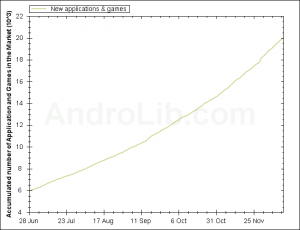
Unless you’ve been vacationing on Mars you will know that Rupert Murdoch has been threatening to ban Google from indexing News Corporation websites. This proposition seems so bizarre that it’s had people wondering whether the Digger might be losing his marbles. There are (as I’ve observed before) two schools of thought:
1. He is losing his marbles.
2. He knows something that the rest of us don’t. Support for this view comes from people’s respect for his track record of making bold, risky decisions which have paid off handsomely. On the other hand, his record isn’t entirely unblemished when it comes to Cyberspace. This will be his third foray into Cyberspace, and his first two were not exactly unqualified successes. And even his purchase of MySpace, once hailed as an act of genius, is beginning to look tarnished in the light of Facebook’s rise. So let’s not get carried away by delusions of the Digger’s omniscience.
Kara Swisher is the latest commentator to attempt to fathom the Digger’s mind. In this post, she offers no fewer than five possible interpretations. Here’s a summary:
1. Murdoch really means it.
the increasing money being made by Google, even as their revenue has suffered, has developed into a growing problem.
Which is simply this: There is a lot more money to be made in searching for content than in making content.
This realization has to shake content czars like Murdoch to the core, but it is indeed the situation they find themselves in.
Murdoch makes a fair point in that journalism costs money to make and it used to have a solid economic system under it until Google and others on the Web disaggregated it wholly.
Thus, online aggregators become “tapeworms,” as The Wall Street Journal Managing Editor Robert Thomson quipped.
2. Murdoch really means to create a lot of confusion, in order to shake down Google.
Well, it would not be the first time Murdoch and many others of his ilk have used public sharp elbows and saber-rattling to get what they want.
Except in this case, the algorithm experts over at Google know precisely–down to the tenth decimal–how much linking to News Corp. makes for them.
And it is not much, especially when looking at the vast sea of data Google serves up.
Its money-making is widely dissipated, from searches for vacation information to mapping to car-buying to health. While news-finding definitely is part of the mix, it is not at the center of the Borg.
3. Murdoch really means to create a lot of confusion, in order to shake down Microsoft.
4. A deal will be made.
My not-too-surprising prediction is that in the end, News Corp. and others will probably strike some kind of lesser deal with Microsoft – although it will tout the heck out of it – while taking some of its content behind a pay wall and thereby de-indexing it from Google.
5. The truth is out there.
In perhaps his most strident television interview, with his Sky News Australia service (which you can see below–oh, the irony–on Google’s YouTube), Murdoch said about those who use Google to find News Corp. content:
“They don’t suddenly become loyal readers of our content. We’d rather have fewer people coming to our Web site but paying.”
That really is the honest truth in all this hubbub: Murdoch and other publishers have to find a way to get a some pool of dedicated online readers to pay enough to be able to then provide them with content that will keep them coming back for more.
That’s a business that Google truly cannot help or hinder, really.
In a nutshell: something will happen but we don’t know what.


